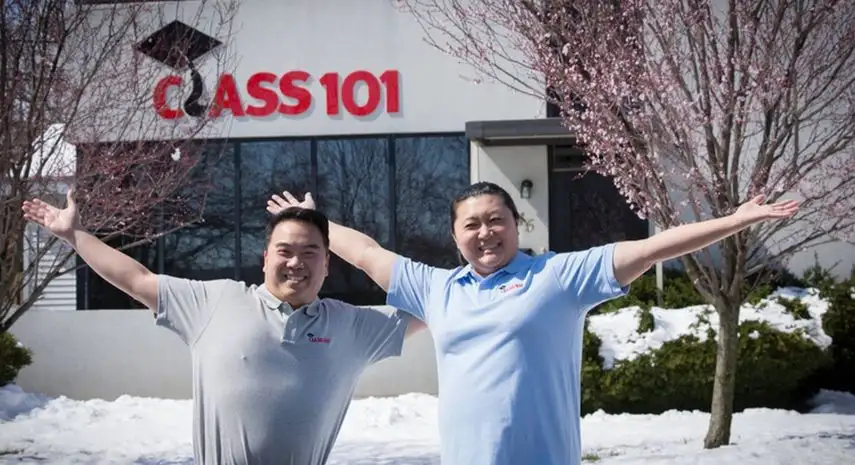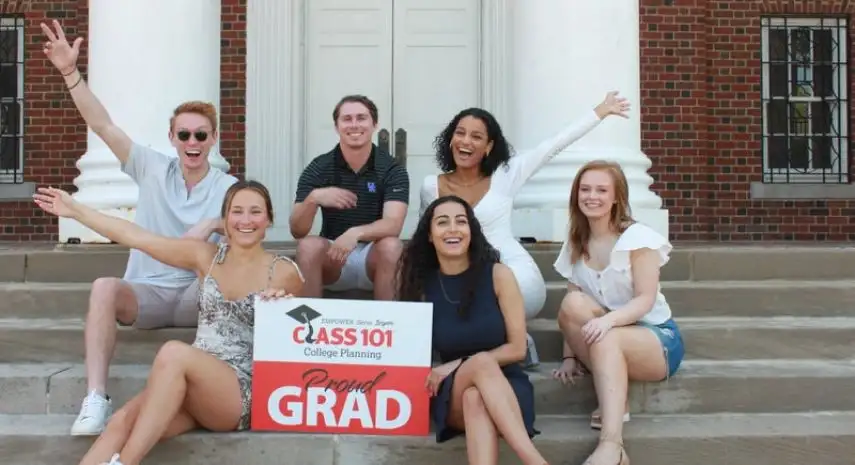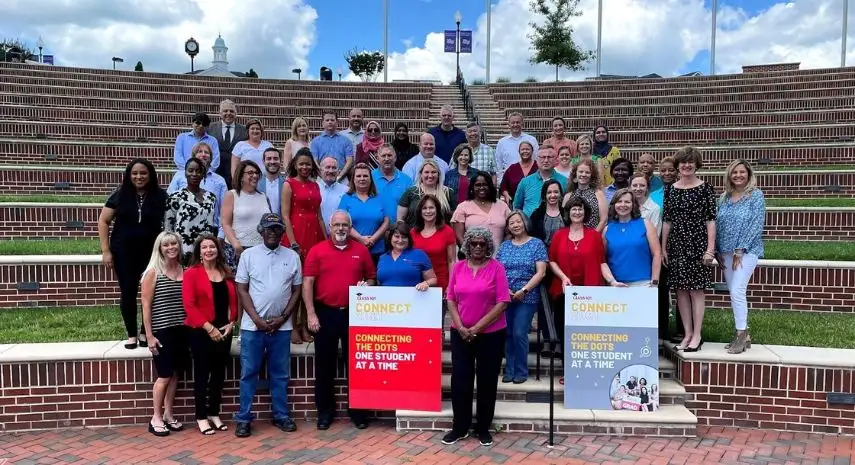Established
1997
Franchise Units
90
Minimum Investment
$75,287
Franchise Fee
$39,900
Total Investment Range
$130,187
Home Based
No
Description
Class 101 offers an exceptional franchise opportunity in the USA for entrepreneurs passionate about education. As a leader in college planning, this franchise helps high school students and their parents navigate the often confusing, competitive, and costly process of college search, admissions, scholarships, and financial aid. With a proven model, strong brand reputation, and steady demand, Class 101 is positioned as a trusted partner in helping students maximize their possibilities and minimize their educational debt. For investors seeking a meaningful, growth-oriented business in the education sector, Class 101 delivers both social impact and financial returns.
Why Invest in this Franchise?
-
Proven Demand & Market Need: With rising tuition costs, intense competition for scholarships, and increasing importance of college admissions on long-term income, families are seeking expert guidance. Many high school counseling systems are overloaded; Class 101 fills a critical gap.
-
Low Entry Barrier (Relatively Low Investment): Compared to many bricks-and-mortar businesses, Class 101’s required investment is moderate (for an education franchise), with relatively low overhead, making it accessible to many investors.
-
Strong Brand & Reputation: Established in the 1990s (formally franchising since about 2007), Class 101 has built credibility through student outcomes, scholarship results, and consistently expanding locations.
-
Multiple Revenue Streams: Revenue comes from one-on-one planning/consulting retainers, ACT/SAT preparation courses, campus tours, scholarship & financial aid workshops, etc. This diversity cushions seasonality risks.
-
High Return Potential: Top performing franchises show strong revenues; the business model emphasizes recurring income, high close rates, and referrals. For many franchisees, break-even and profitable operations begin within a relatively short span.
Background
Established Year & Origins
Class 101 was founded in 1997 in Lexington, Kentucky, by Tom Pabin, a financial advisor who saw the growing challenges students and families faced with the college admissions process. He developed a structured program to help students improve ACT/SAT scores, build stronger applications, and secure more scholarship opportunities. His model quickly gained popularity, leading to the launch of franchising in 2007 to meet the rising national demand for college planning services.
Founders & Leadership
The brand’s visionary founder, Tom Pabin, shaped the mission of helping high school students get into better colleges and qualify for higher amounts of financial aid. Under his leadership, Class 101 evolved from a small educational consultancy into a nationwide network of franchise locations. In 2022, the franchise operations were formalized under Class 101 Franchise, LLC, a Delaware-based company, to scale its growth more effectively across the U.S.
Brand Journey & Growth
What began as a local student success program has now expanded into a fast-growing franchise network with 70–90 units across more than 30 states. Over the past two decades, Class 101 has helped thousands of families save millions of dollars in college tuition through scholarships and financial aid. The brand is well-positioned within the education and youth services industry, combining tutoring, mentoring, admissions coaching, and financial planning into a single, comprehensive service model.
Company History & Evolution
- 1997 – Class 101 founded in Lexington, Kentucky.
- 2007 – Official launch of the franchise model.
- 2010s – Steady growth with multiple territories awarded; refinement of training programs, student manuals, and marketing tools.
- 2020s – Expansion to 30+ states, growing recognition as one of the premier college planning franchise opportunities in the U.S.
- 2022 – Formation of Class 101 Franchise, LLC (Delaware) as the legal franchisor entity, solidifying corporate structure and franchise support systems.
Market Presence in the USA
Class 101 operates in suburban and mid-sized metro markets across the country, targeting regions with a strong high school student base. With each franchise territory covering around 250,000 in population and multiple high schools, franchisees have a defined and protected market to build their client base.
Industry Category
Class 101 belongs to the Education & Training Services Franchise Industry, specifically under College Planning, Academic Support, and Tutoring Services. It stands out from traditional tutoring franchises by offering a comprehensive suite of services: test prep, application assistance, scholarship guidance, campus visits, and overall college readiness.
Reputation & Differentiation
Class 101 has earned recognition as one of the most affordable, high-impact educational franchises, helping families achieve life-changing results. The combination of a structured system, consistent student outcomes, and a scalable business model has built trust among parents, students, and franchise investors alike.
Support Training
Pre-Launch / Pre-Opening Support
• Territory selection: defined territories based on population (~250,000 population, serving 6-8 high schools per territory).
• Manuals & Materials: franchisees receive detailed operations manual, high school manual, curriculum, meeting checklists, sales presentation templates, archived materials, etc.
• Training: a combination of classroom training, on-the-job training, training videos; approx training related expenses built into the investment cost.
Operational Support
• Ongoing field support and guidance, especially for first months after opening.
• Detailed processes for how to work with students: course selection, test prep, essay writing, campus visits, scholarship tracking, etc.
Marketing Support
• Materials: brochures, business cards, signage templates, graphics, social media calendars.
• Local marketing guidance: working with high schools, building referral networks, local advertising, grand opening marketing.
Academic / Service Support
• Curriculum updates and alignment with current college admissions criteria, scholarship requirements, test standards.
• Tools for advising: worksheets, assessment tools, perhaps student progress monitoring.
Ongoing Support & Growth
• Regular check-ins, meetings, regional or national franchisee gatherings.
• Continuing education / training, perhaps via webinars or updated materials. Corporate support for evolving best practices.
Ideal Candidate
Background & Traits
• Passion for education and for helping young people succeed. Someone who genuinely cares about students’ futures.
• Entrepreneurial mindset: able to follow proven systems, but also connect with community, build networks (with local schools, parents). Self-motivated and organized.
• Strong communication skills: must work with teenagers, parents, school staff; ability to explain complex processes (financial aid, essays, test prep). Patient, articulate, positive.
Business / Educational Experience
• Prior business experience helps but is not strictly required. Some franchisees come from education backgrounds (teachers, counselors), youth programs, etc.
• Comfort with academic content (understanding standardized tests, admissions criteria) and ability to lead or hire capable academic staff.
Financial Capacity
• Enough capital to cover the minimum investment ($75,000+), plus working capital for first few months.
• Net worth minimums are usually specified (for example, having liquid assets or net worth that supports the required cash investment).
Location & Time Commitment
• Territory must be in a region with sufficient high school population density; suburbs or mid-size metro areas are often ideal. The model includes working afternoons and evenings (for meetings with high school students).
• A hands-on owner is preferred, at least during launch; as the business matures, may hire staff.
Financial Detail
Total Investment Required
• Estimated total investment ranges between US$ 75,287 to US$ 130,187 to begin operating an individual Class 101 franchise.
• If you take a development agreement (opening two to three units), the investment for those combined is higher: approx US$ 112,787 to US$ 197,687 including payments to franchisor.-
Franchise Fee
• The initial franchise fee is US$ 39,900.
• In FDD, some portion of payments to franchisor/affiliates is between about US$ 49,900-US$ 54,900 depending on the structure. -
Royalty Fees & Other Ongoing Fees
• Royalty fee is 8.0% of gross sales.
• Advertising / marketing fees are about 2.0% of gross sales. -
Working Capital / Additional Costs
• Need to budget for 3 months of operating expenses / working capital: approx US$ 10,000 to US$ 15,000 in initial additional funds.
• Leasehold or tenant improvements, signage, furniture/fixtures, technology, licensing, insurance, etc. These vary depending on location. -
Marketing Budget
• Grand opening marketing: approx US$ 10,000 to 15,000.
• Ongoing local marketing plus franchise support for marketing materials. -
Expected Revenue Streams
• One-on-one college planning / consulting retainers (often the bulk).
• Test prep classes (ACT, SAT).
• Workshops / seminars (on financial aid, scholarship, college savings).
• Campus tours and “visiting colleges” programs. -
Expected ROI / Break-Even Time
• Some franchisees reach meaningful profitability in the first year. Top quartile at least reported revenues in the US$ 400,000+ range.
• Break-even depends on location, overhead, marketing effectiveness, and how quickly the franchise builds its client base. Likely break-even may occur within 12-24 months for well performing outlets.







